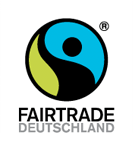Have you ever wondered, what a typical day of an activist that stays in the other side of the world looks like? Yes, we figth for the same cause. But what do they exactly do? What is their motivation? Is it the same as ours? Is the same force needed for being and activist here (global north) or there (global south)? Last week I had the chance to answer those questions with Liz Lorena Perca, a young fairtrade embassador from Bolivia.
Liz Lorena started her journey as activist when she was nominated to be part of the youth and gender equity commission of the Chocolate Cooperativa where her Father is an associate. Since early in her life she had the concern about who is going to take care of the land, when most of her classmates where emigrating to the city. That lead her to join her father to the asambles1 where the cacao producers meet and plan strategies to solve issues or accomplish goals for the cacao production. I could vividly imagine her taking place in such meetings, coming also from Bolivia, I know that those meetings are (or was at least for me) the start of revolution of ideas and believes that things could change if you raise your voice.
Once being elected Lorena was the youngest member of the commission board. Soon, she realized that there was a lack of commitment of the members. She waited for long periods to execute all the plans that were on paper. But then she decided to take action and started to touch doors here and there to execute the plan for the year. That plan was the implementation of children care center that could serve for all producers to keep working and being parents at the same time. Which at the end was operating and now is indispensable.
After that experience many doors where open, and she could be the first president of the Youth Group for Fairtrade in Bolivia. In that group producers from 5 lines of products meet up and talk about the issues that youth people is facing. These five lines of production with the fair trade stamp include Cacao, Café, Quinoa, Castaña and Handcrafts2. Some of those problems include the lack of motivation of youth people to stay in their communities and continue the familiar business. Not only motivation was the reason, also the lack of opportunities to access good education in the villages or the access to good health services. However, she thinks that this situation is improving. In her village for example the opening of technical institute for agriculture, allowed youth to stay in their communities and study. She herself is a teacher in that institute and with the help of the of the network of Fair Handel that she built, she is promoting extracurricular courses about climate change, organic production and much more.
Fairtrade for her meant to the opportunity to know more people that share the same concerns as her and trying or planning ways to solve the question from the producers.
I was more than glad to have that meeting with Liz and hope to meet her in person when I go there for the carnival of Oruro in 20224!
*************************************************************************************************************************************************************************
When it comes to chocolate, Bolivia might not be the first place that comes to mind. However, this However this is changing thanks to combined effort of instutions like the FAO, NGOs and small holder cooperatives. In the last five years, Bolivian chocolate producers have been agilely accumulating achievements and gaining worldwide recognition for the quality of their products. Today, they are among the 20 best cocoas in the world and this product has increased its value in the world market. Source: FAO
*************************************************************************************************************************************************************************
Stuttgart, 02.12.2021
Pamela Alina Conde Morales*
* Pamela is a Fair Activist in Germany. Born in Oruro Bolivia, she is currently studying a master’s degree in Environmental Engineering at the University of Stuttgart, and her dream is to work in the Government of her country to improve the living conditions of producers, support local consumption and industrialization.
1 Asambleas = Meetings with diffent cooperativas3. The asamblea the highest body and its decisions are binding on all members. More: https://www.cepal.org/sites/default/files/events/files/bolivia_-_ceibo_parte_ii_1.pdf
2 Products in Bolivia: https://clac-comerciojusto.org/lineas-de-trabajo/desarrollo-regional/region-andina/
3 Cooperativas= In order to obtain better market prices, rural producers have organized themselves into small cooperatives, represented by large cooperatives. This helps them avoid costly middlemen and improve their market access. Source:
4 Carnival of Oruro = The Carnival of Oruro is a cultural festival in Oruro, where over 60,000 dancers, about 10,000 musicians in 150 bands, 400,000 visitors celebrate over 10 kilometers. The carnival is one of UNESCO’s Masterpieces of the Oral and Intangible Heritage of Humanity. Source: Wikipedia
